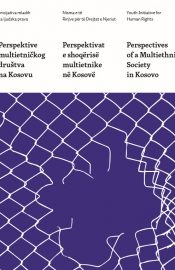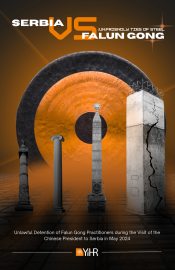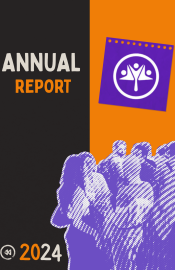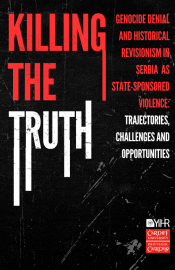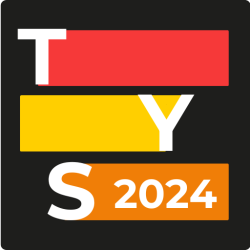Seriously deteriorated at the end of the 1980s, the relations between Belgrade and Prishtina are being rebuilt very slowly and with numerous obstacles. This process was founded by artists, independent intellectuals and human rights activists – those who are seldom burdened with daily political interests and who do not hesitate to openly speak about the problems of the society they live in. Thanks to them, the communication among certain Serbian and Albanian circles in fact has never stopped.
The mission of reducing the distance between the Albanian and the Serbian societies includes some media, free-thinking journalists whose reporting opposes the discourses which rather reflect the governments’ needs than the reality as it is. After the end of the conflicts, and at first in a very modest number, some young people also started their journeys towards Belgrade and Prishtina, going to the “other side” with a desire to tear down the walls erected in their surroundings by getting to know the people of the same generation.
Today the communication between Kosovo and Serbia is unimpeded in some circles, in spite of a still dominant conviction that something like that is not only unnecessary but also impossible. However, the connections established so far are weak because their influence on broader public is still insufficiently strong. The examples of good cooperation are still recorded as the news and mentioned as exemptions.
One such example is the publication „Perspectives of a Multiethnic Society in Kosovo” which is a pioneer step in establishing an academic cooperation between Belgrade and Prishtina. It is the result of work of ten associates of the Faculty of Political Sciences of the University of Belgrade and the Department of Political Science at the Faculty of Philosophy of the University of Prishtina. It emerged from a spontaneously noticed need to deal in academic way with some issues related to the functioning of the Kosovo political system. The greatest credit for this project goes to Stefan Surlić, researcher of the Centre for Interdisciplinary Studies of the Balkans at the Faculty of Political Sciences. Upon his initiative, a group of young associates of the Belgrade Faculty gathered, with an interest to research the political and social life in Kosovo. Participating in this project, they travelled to Kosovo for the first time, met their colleagues from Prishtina and got actively involved in carrying out an academic research.
The Brussels negotiations between the representatives of Belgrade and Prishtina institutions showed that there were some spheres of life the normalisation of which required an inter-governmental agreement. However, the everlasting question is what influence the meetings of the two Prime Ministers and their teams have on normalisation of the relations between “ordinary people”. The findings in the texts in front of you testify about a frighteningly deep ethnic distance between Serbs and Albanians in Kosovo. They are devastating, but can also be used as a motivation for an even more intensive and consistent work on the reduction of the existing prejudices between the two nations.
Ten authors of the texts in front of us made the first steps, but also made us think how to contribute to the intensification of communication between the universities in Serbia and in Kosovo and about other modes of institutional cooperation as well. The Youth Initiative for Human Rights believes that current socio-political circumstances offer the possibility to increase and enrich the list of formal modes of cooperation in comparison with the initiatives realised at unofficial levels.
The establishment of the first steps of cooperation between the academic communities of Kosovo and Serbia was helped by the Embassy of the United Kingdom in Serbia. We impatiently expect such and similar projects to be realised from the state budget funds or from the respective faculties’ budgets. This will put the academic cooperation between Belgrade and Prishtina within the scope of regular academic activities, with no attributes of exclusivity.
Despite negotiations with the deans in Belgrade and Prishtina that took more than a year, this publication bears logo of neither faculty. There was no political courage on either side to stand by the initiative of young academic workers and recognize their need for establishment of official communication channels with the colleagues in the region. However, this group of young people did not see this as a failure, but an incentive to continue the cooperation until their efforts are academically recognized as well.
You can download the publication here.

